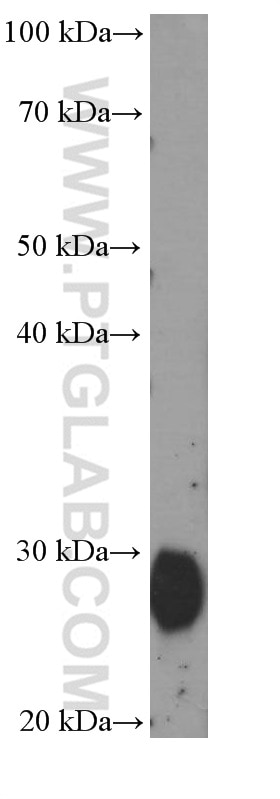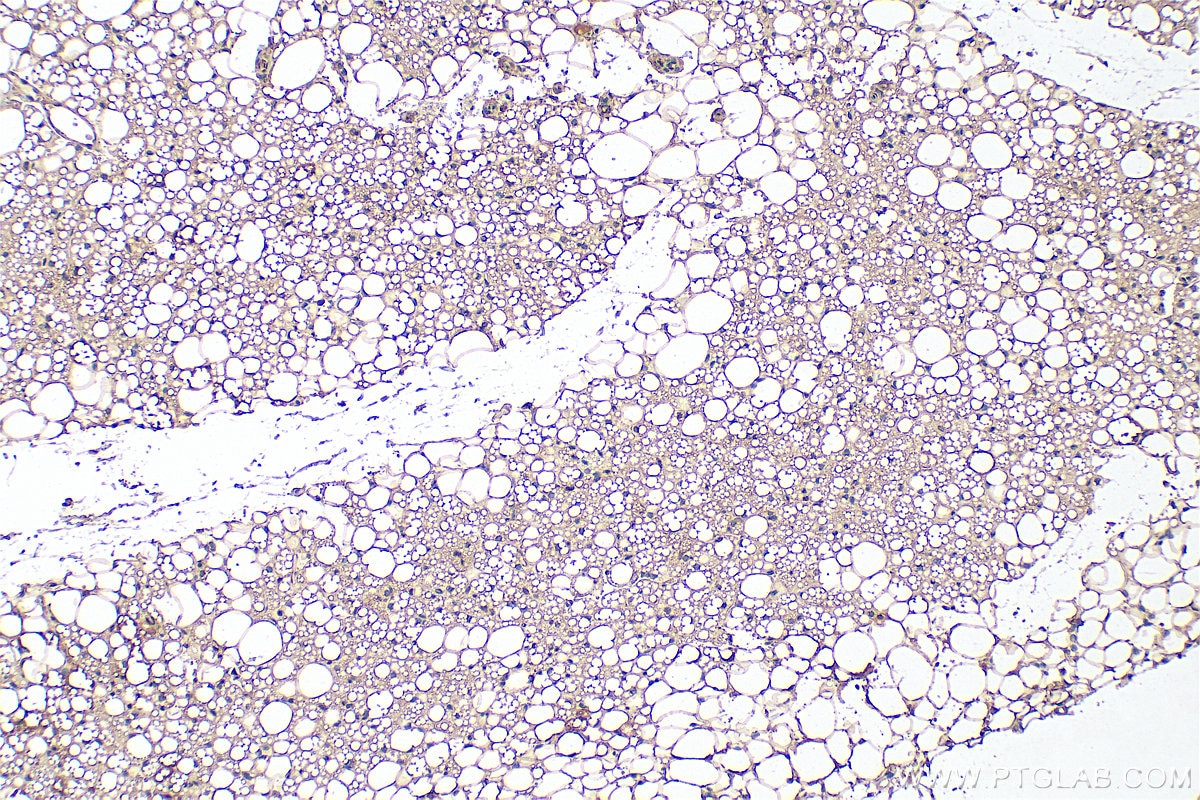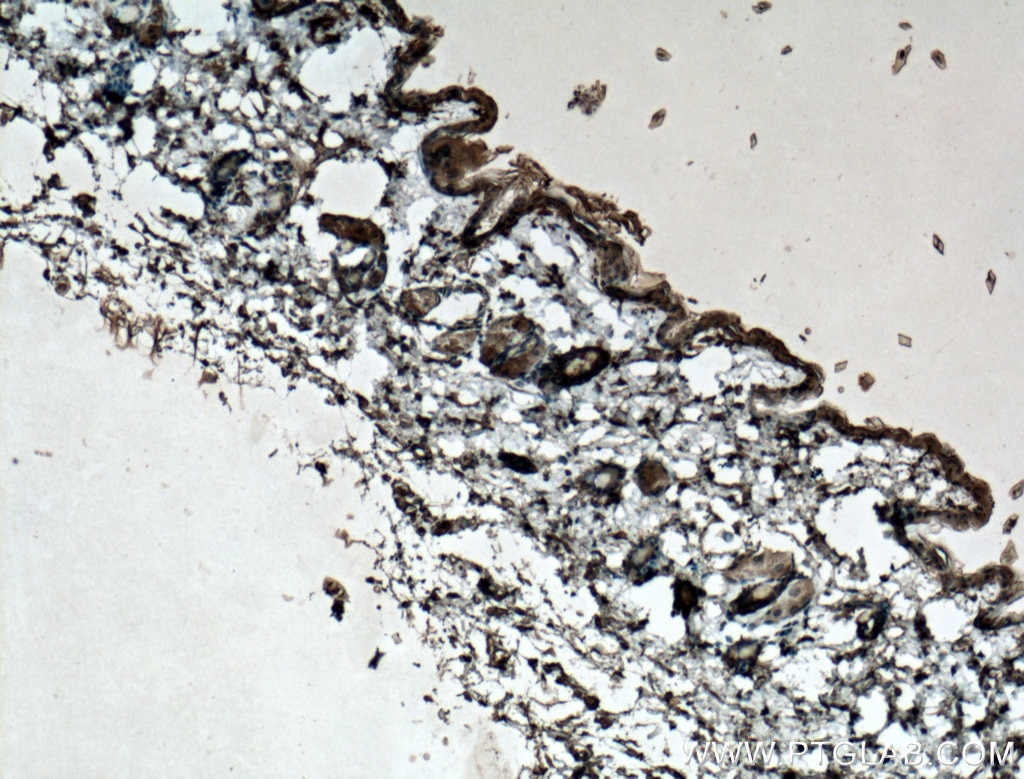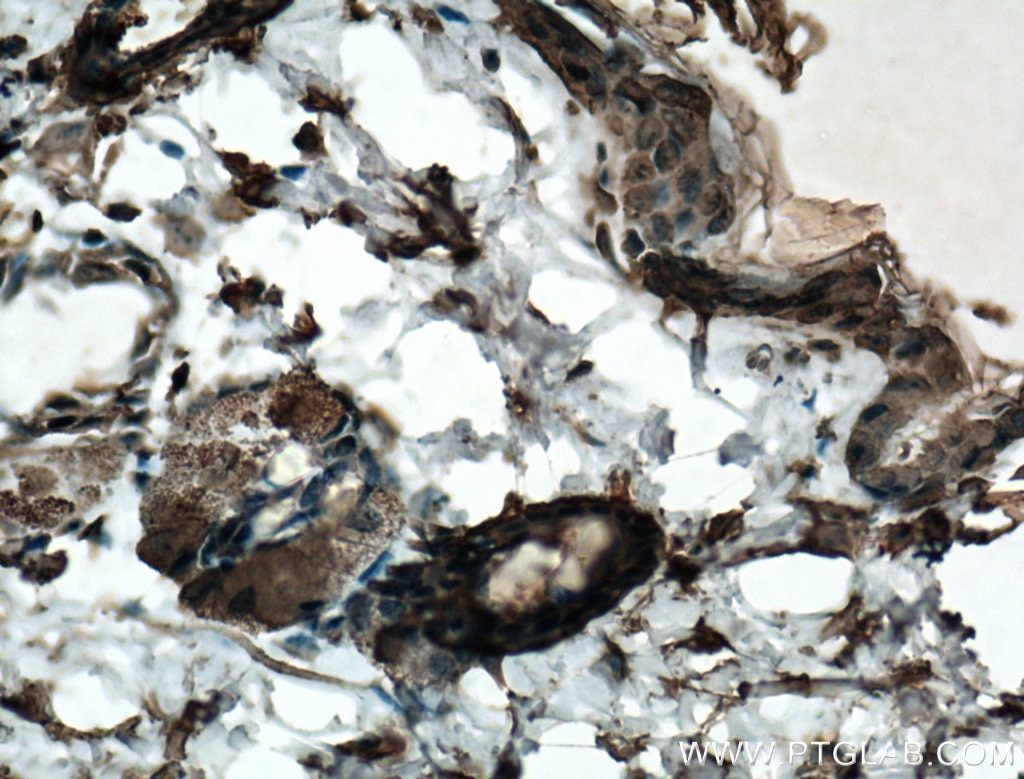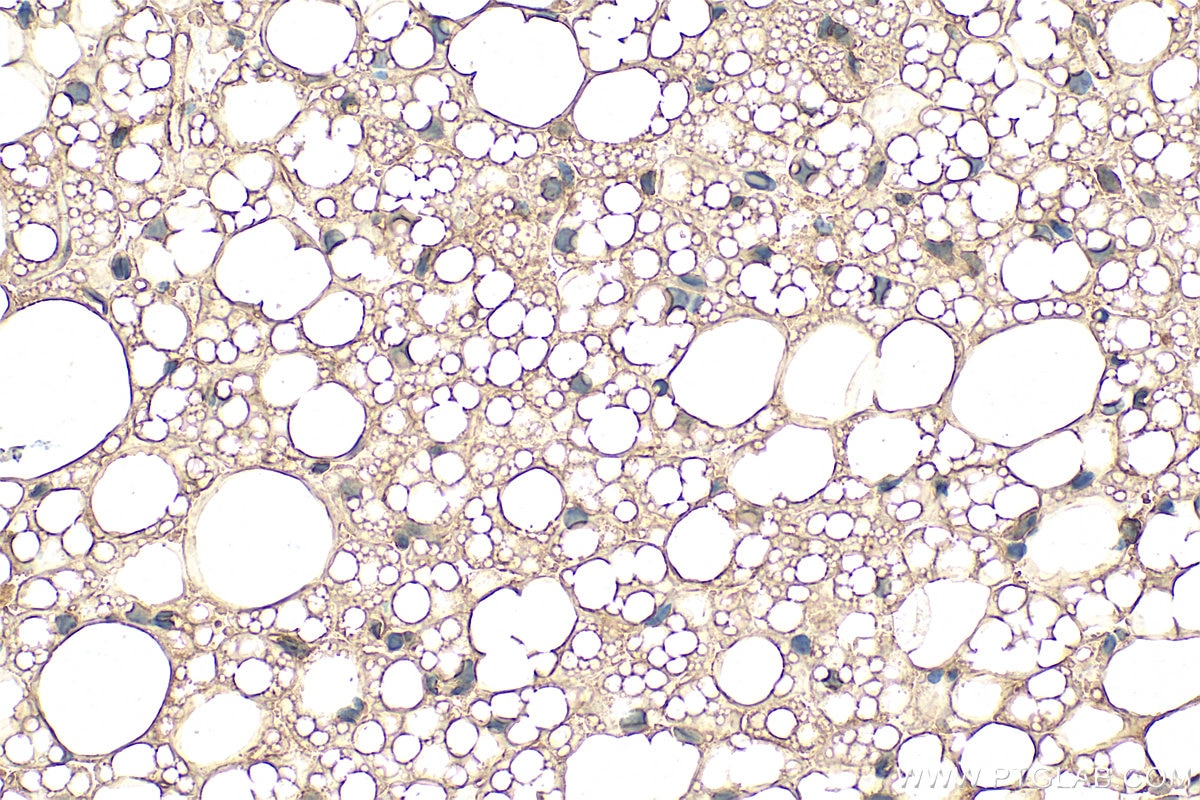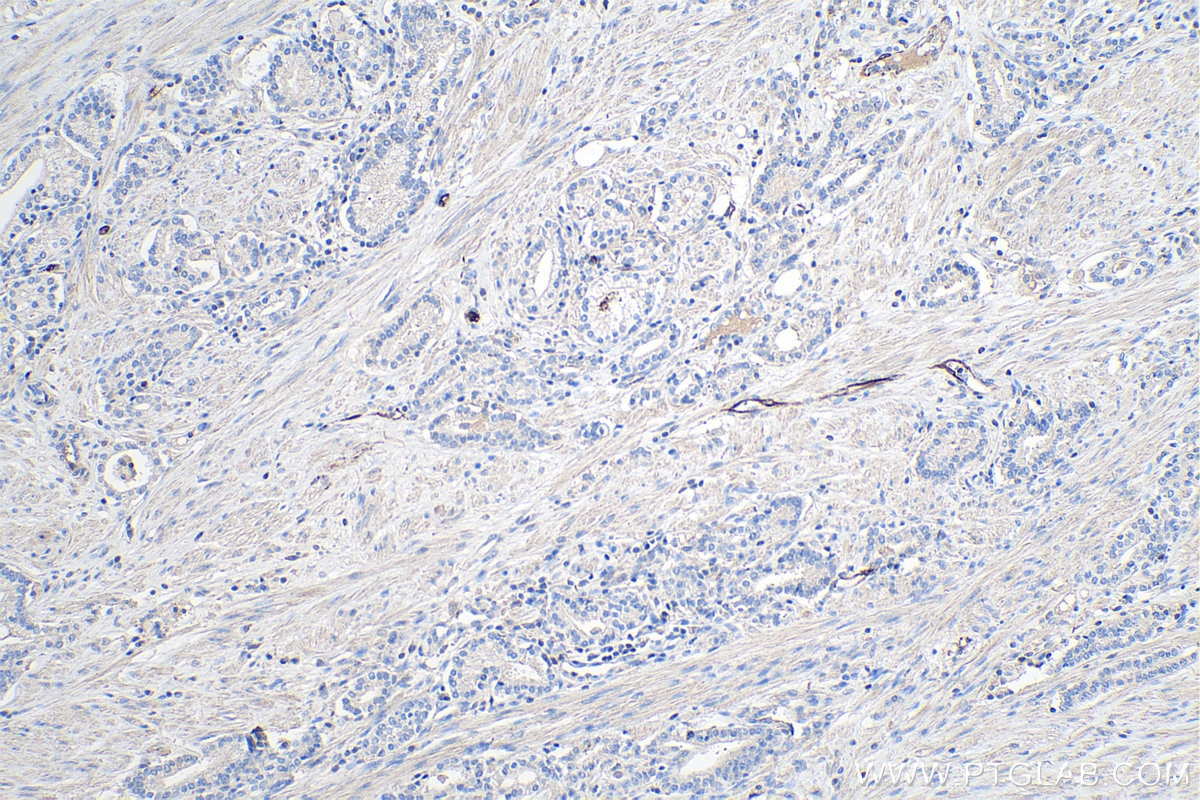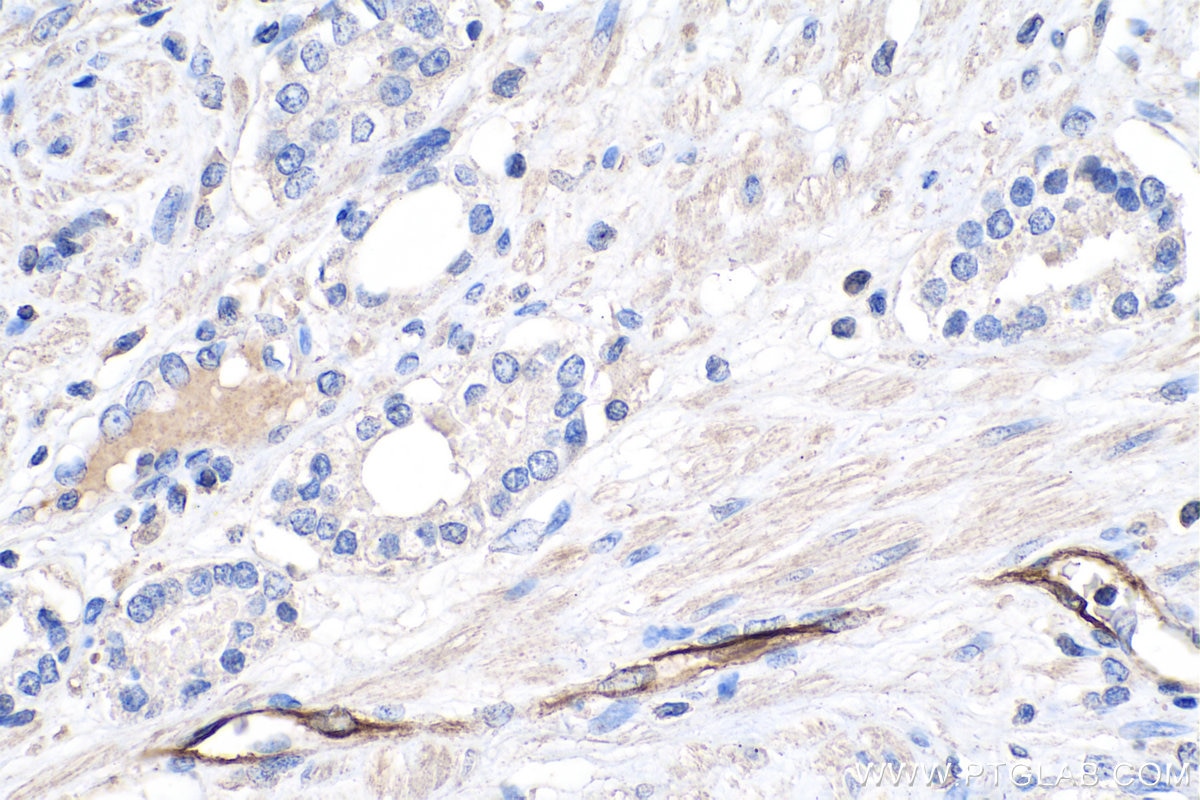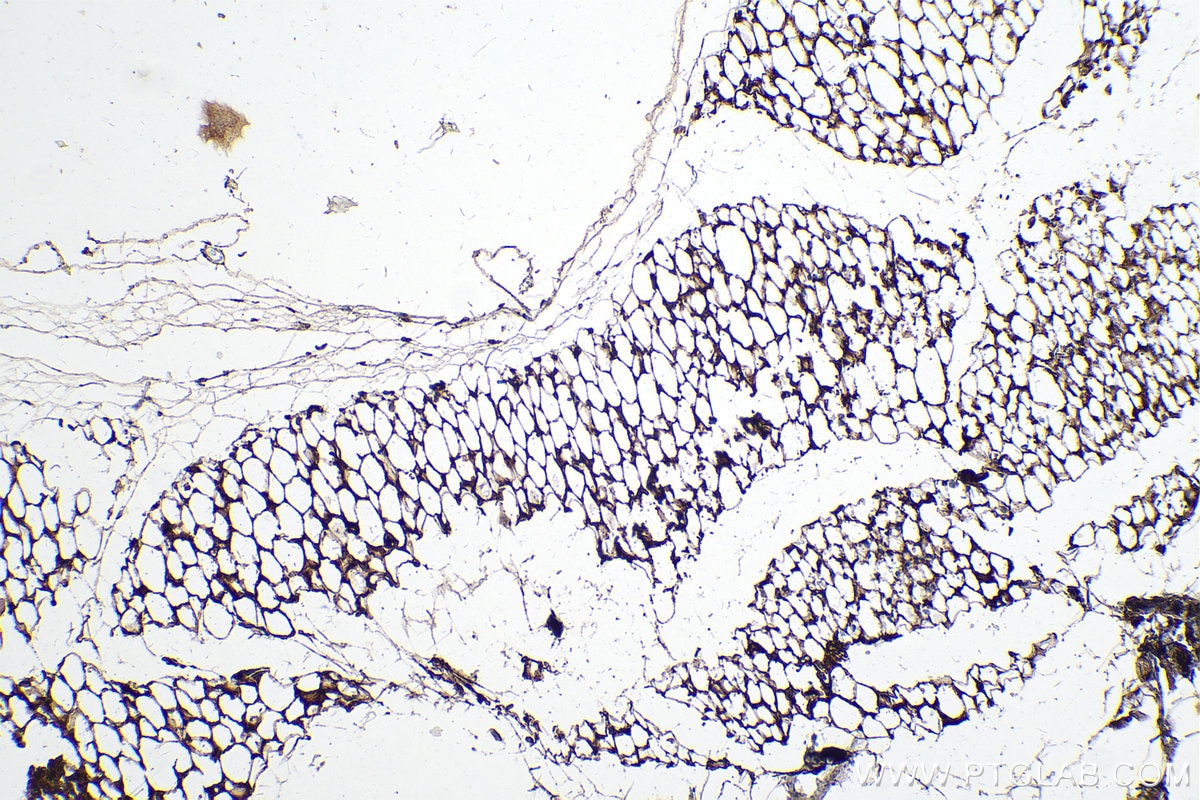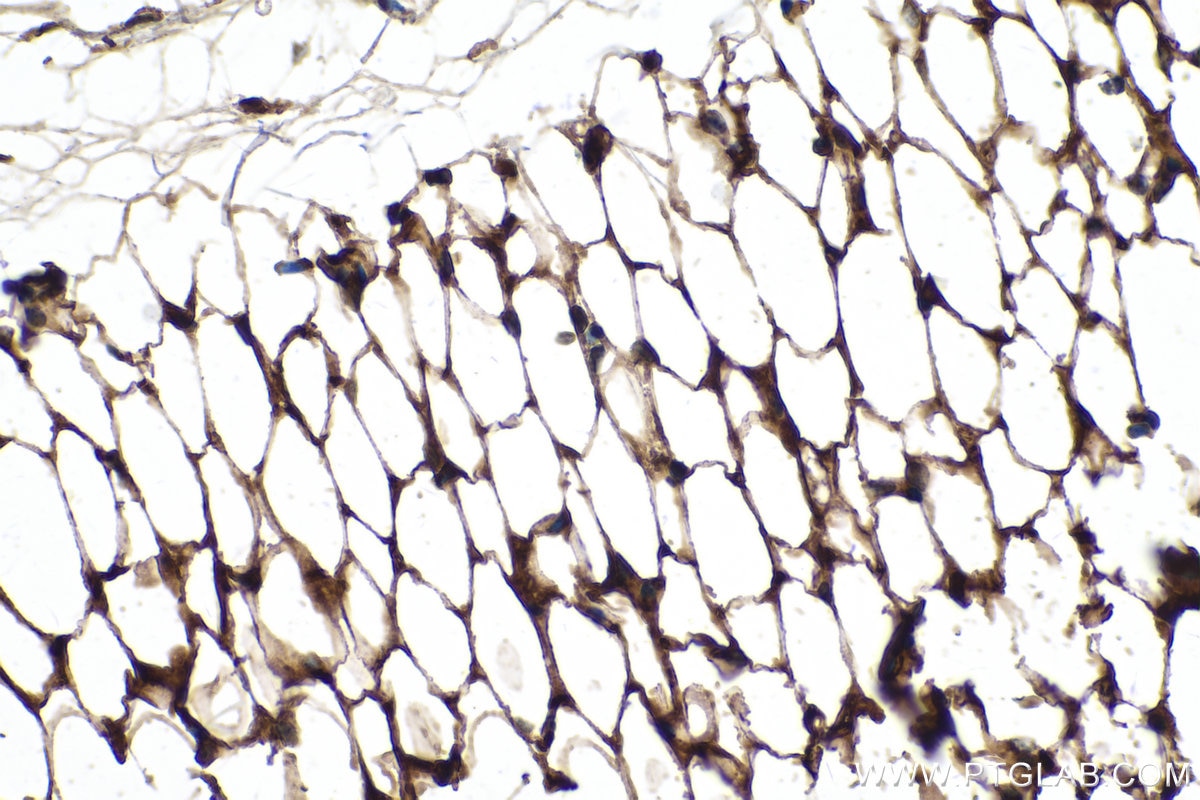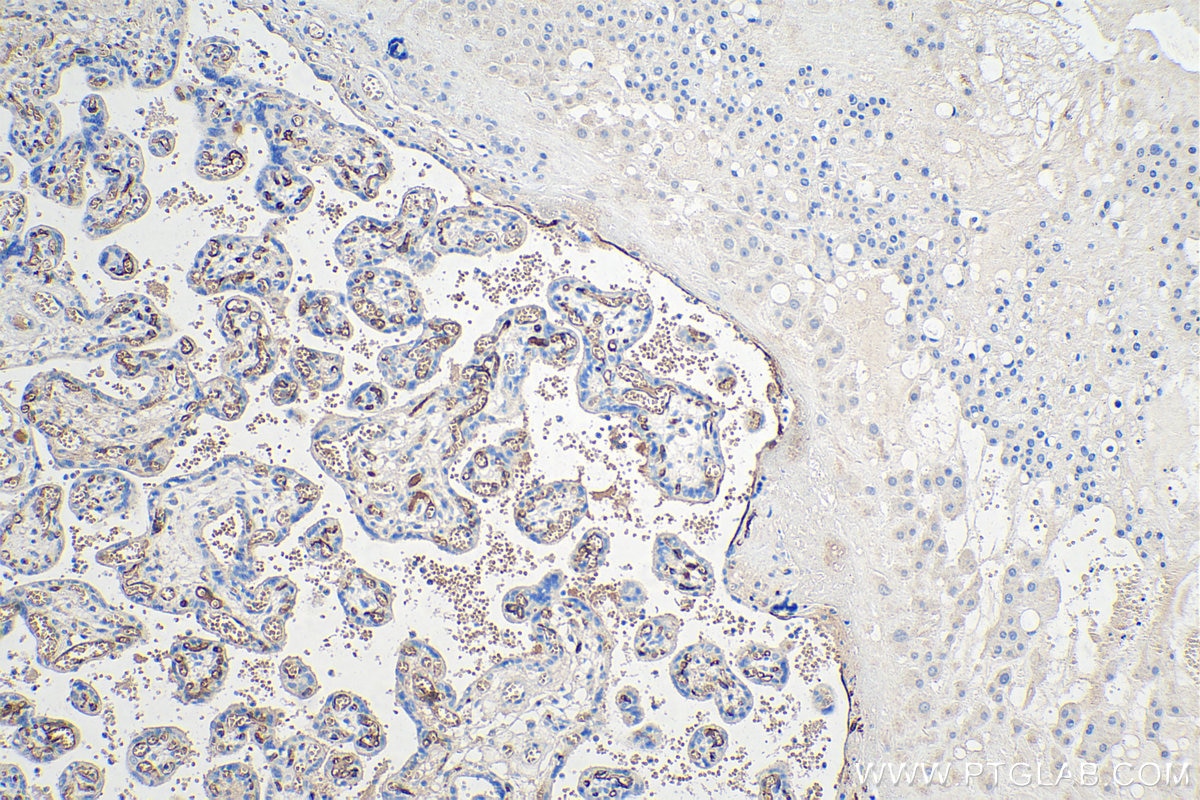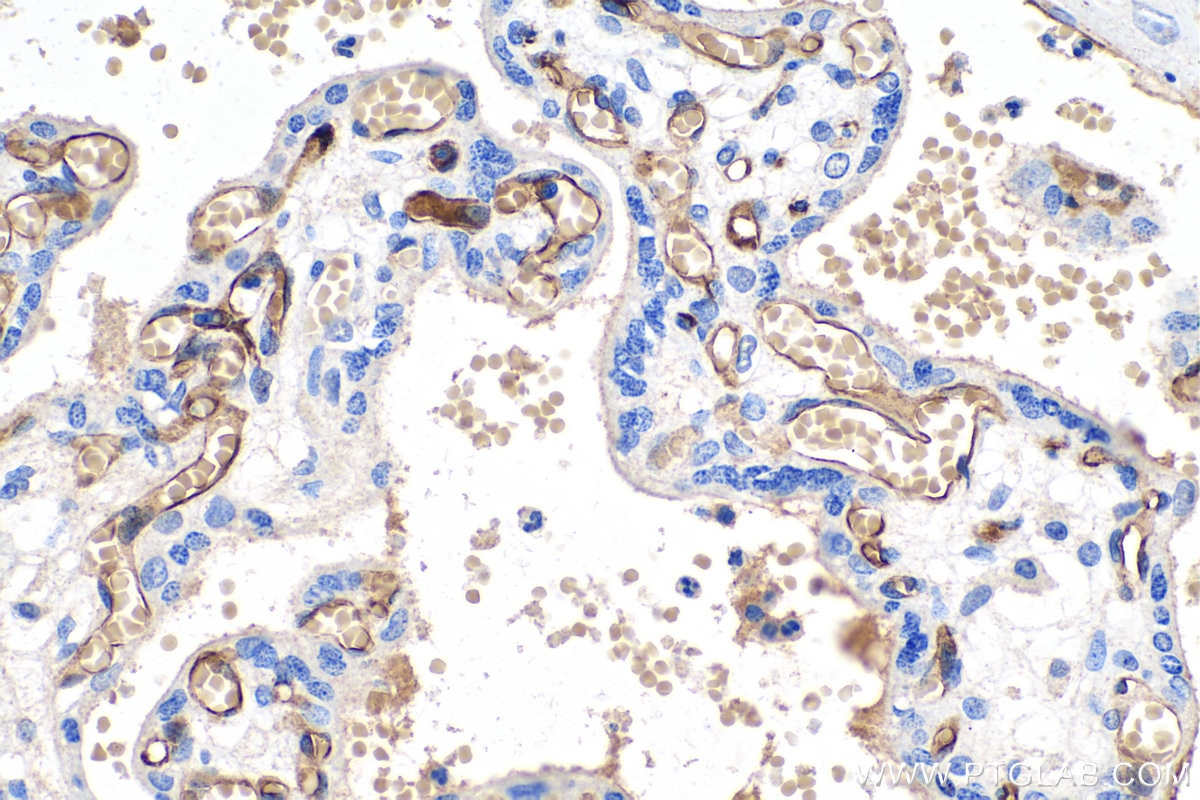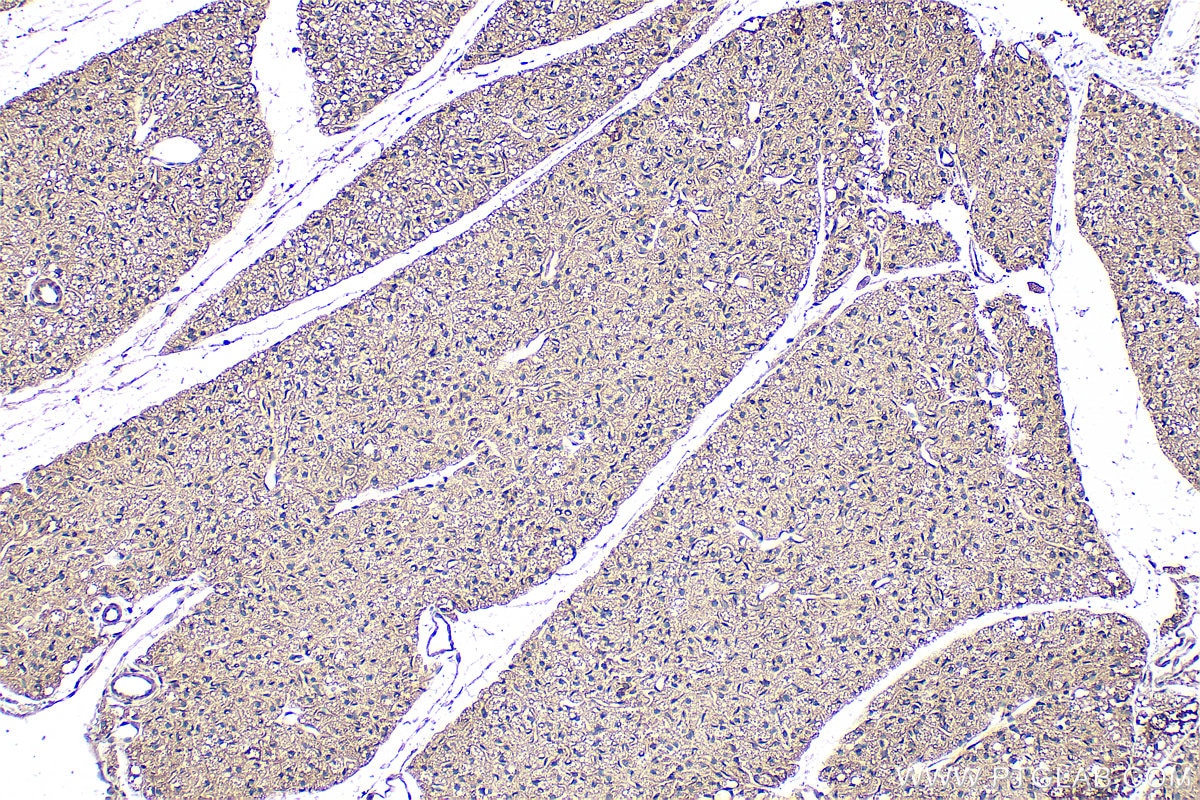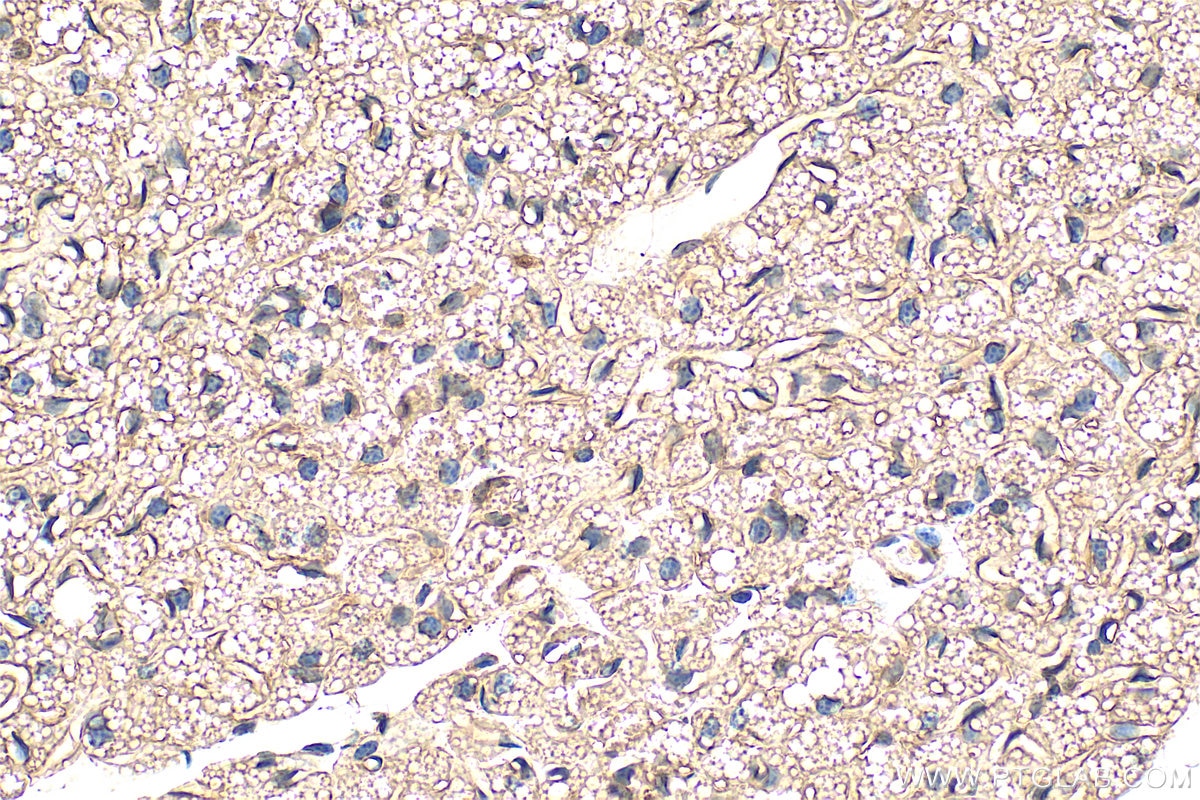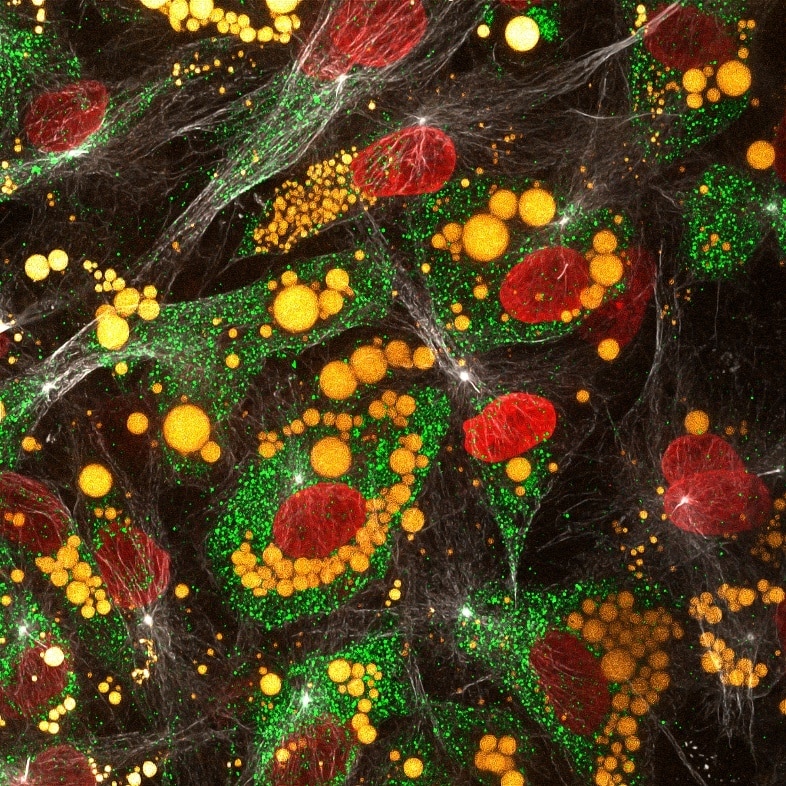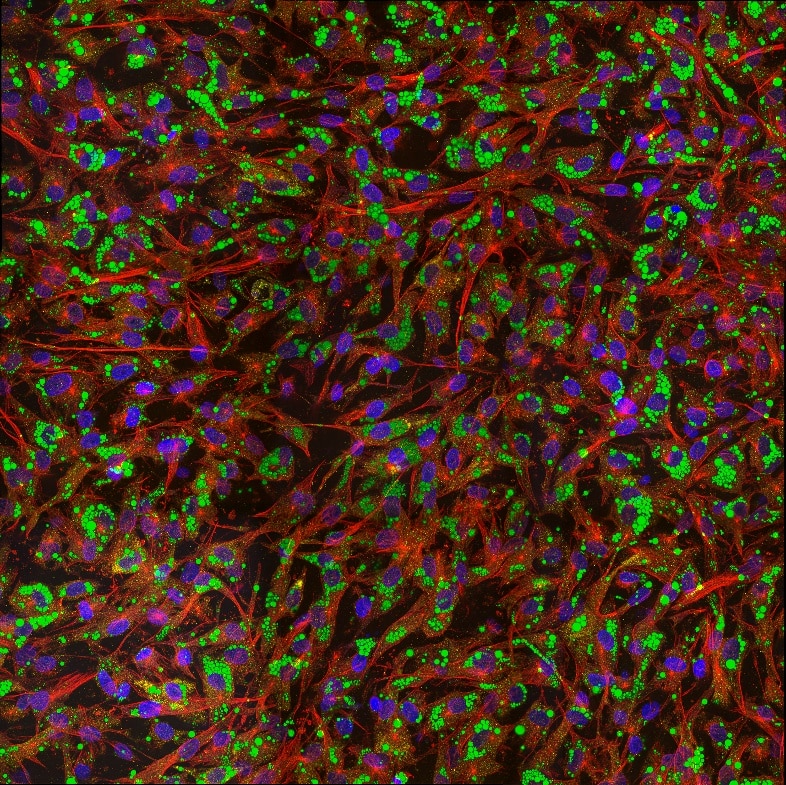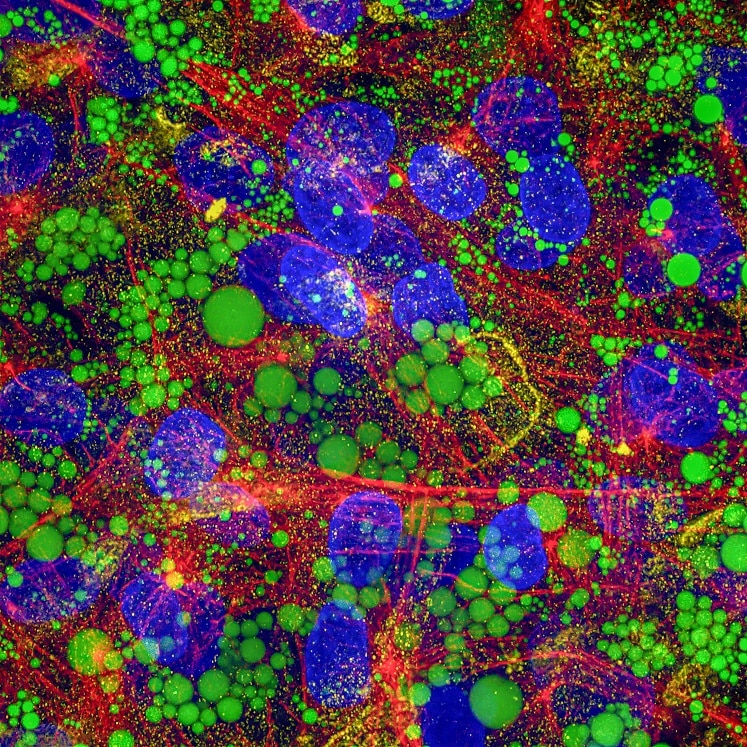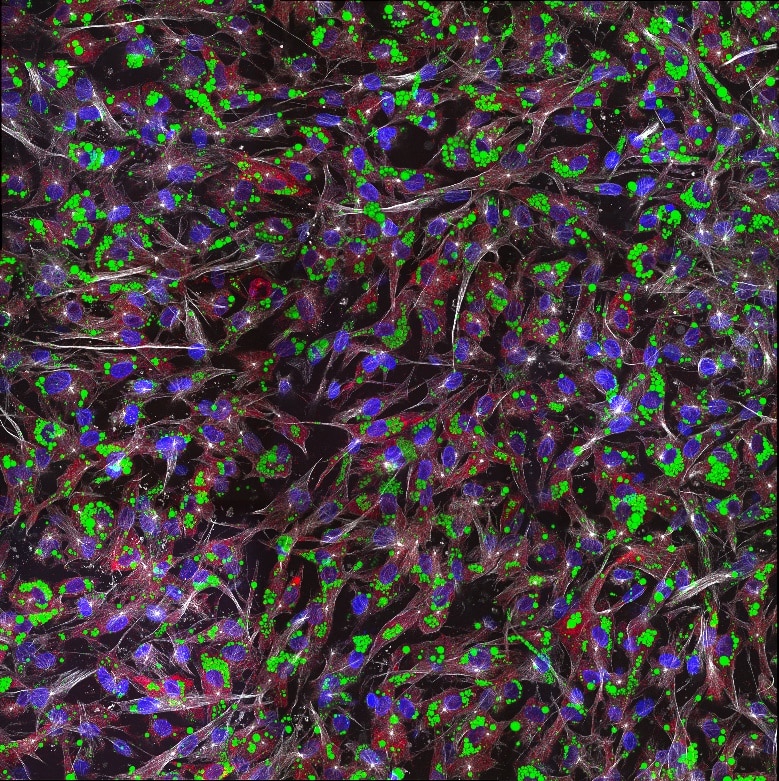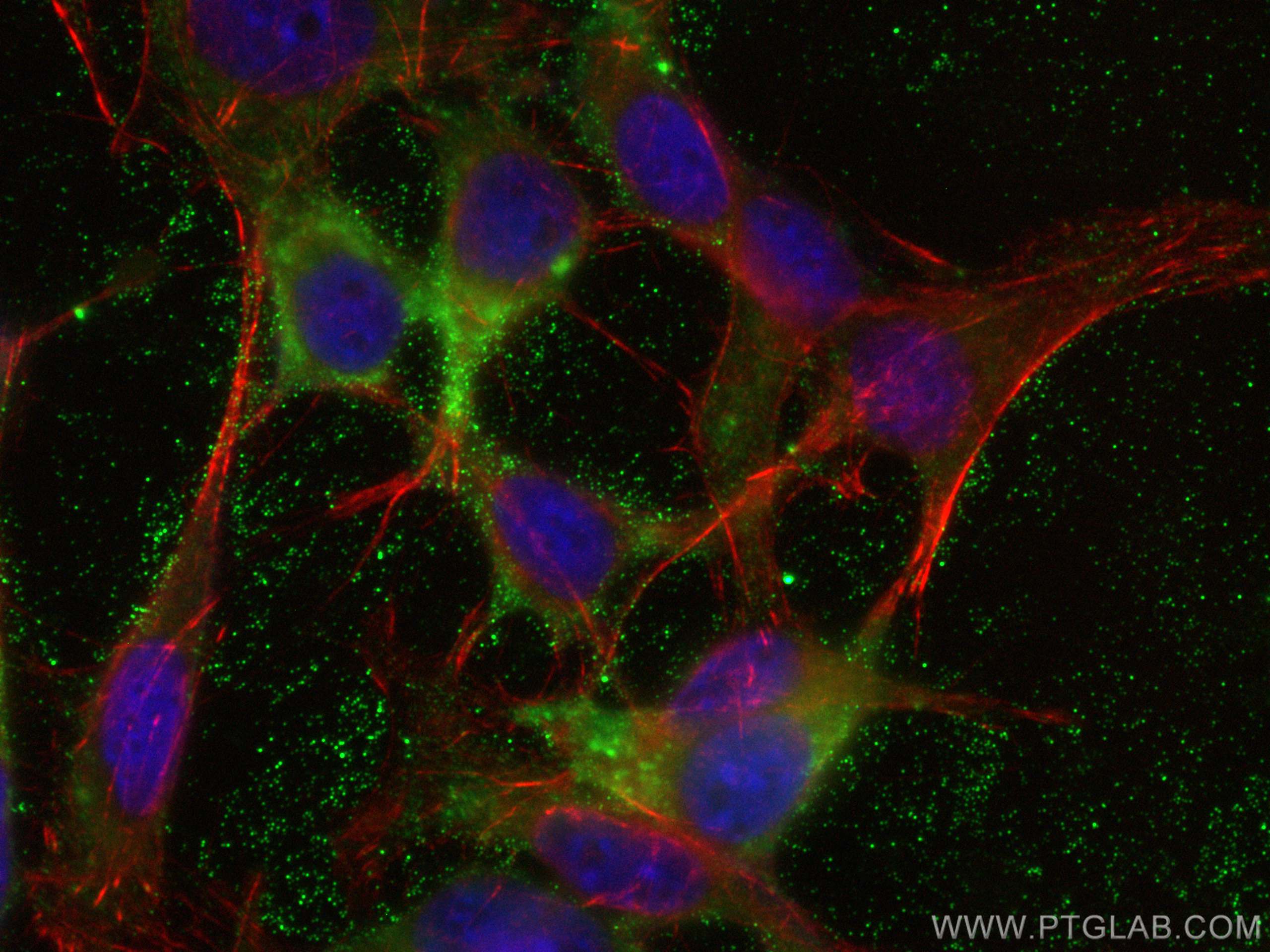Anticorps Monoclonal anti-Adiponectin
Adiponectin Monoclonal Antibody for WB, IHC, IF/ICC, ELISA
Hôte / Isotype
Mouse / IgG1
Réactivité testée
Humain, rat, souris et plus (1)
Applications
WB, IHC, IF/ICC, ELISA
Conjugaison
Non conjugué
CloneNo.
5D8A7
N° de cat : 66239-1-Ig
Synonymes
Galerie de données de validation
Applications testées
| Résultats positifs en WB | tissu adipeux humain |
| Résultats positifs en IHC | rat brown adipose tissue, tissu adipeux brun de souris, tissu cutané de souris, tissu de cancer de la prostate humain, tissu de muscle squelettique de souris, tissu placentaire humain il est suggéré de démasquer l'antigène avec un tampon de TE buffer pH 9.0; (*) À défaut, 'le démasquage de l'antigène peut être 'effectué avec un tampon citrate pH 6,0. |
| Résultats positifs en IF/ICC | cellules 3T3-L1, human adipose-derived mesenchymal stem cells |
Dilution recommandée
| Application | Dilution |
|---|---|
| Western Blot (WB) | WB : 1:500-1:2000 |
| Immunohistochimie (IHC) | IHC : 1:200-1:800 |
| Immunofluorescence (IF)/ICC | IF/ICC : 1:200-1:800 |
| It is recommended that this reagent should be titrated in each testing system to obtain optimal results. | |
| Sample-dependent, check data in validation data gallery | |
Applications publiées
| WB | See 8 publications below |
| IF | See 2 publications below |
Informations sur le produit
66239-1-Ig cible Adiponectin dans les applications de WB, IHC, IF/ICC, ELISA et montre une réactivité avec des échantillons Humain, rat, souris
| Réactivité | Humain, rat, souris |
| Réactivité citée | Humain, porc, souris |
| Hôte / Isotype | Mouse / IgG1 |
| Clonalité | Monoclonal |
| Type | Anticorps |
| Immunogène | Adiponectin Protéine recombinante Ag17383 |
| Nom complet | adiponectin, C1Q and collagen domain containing |
| Masse moléculaire calculée | 244 aa, 26 kDa |
| Poids moléculaire observé | 29 kDa |
| Numéro d’acquisition GenBank | BC096308 |
| Symbole du gène | Adiponectin |
| Identification du gène (NCBI) | 9370 |
| Conjugaison | Non conjugué |
| Forme | Liquide |
| Méthode de purification | Purification par protéine G |
| Tampon de stockage | PBS with 0.02% sodium azide and 50% glycerol |
| Conditions de stockage | Stocker à -20°C. Stable pendant un an après l'expédition. L'aliquotage n'est pas nécessaire pour le stockage à -20oC Les 20ul contiennent 0,1% de BSA. |
Informations générales
Adiponectin (AdipoQ), an adipocyte-derived hormone, is one of the most abundant adipokines in the blood circulation. Adiponectin modulates a number of metabolic processes, including improving INS sensitivity and anti-inflammatory activity. The role of AdipoQ in reproduction is not yet fully understood, but the expression of AdipoQ in reproductive tissues has been observed in various animals and humans, including chicken testis, bovine ovary, and human placenta. Adiponectin exerts its effects by activating a range of different signaling molecules via binding to two transmembrane AdipoQ receptors, AdipoR1 and AdipoR2. AdipoR1 is expressed primarily in the skeletal muscle, whereas AdipoR2 is predominantly expressed in the liver. AdipoQ May play a role in cell growth, angiogenesis and tissue remodeling by binding and sequestering various growth factors.
Protocole
| Product Specific Protocols | |
|---|---|
| WB protocol for Adiponectin antibody 66239-1-Ig | Download protocol |
| IHC protocol for Adiponectin antibody 66239-1-Ig | Download protocol |
| IF protocol for Adiponectin antibody 66239-1-Ig | Download protocol |
| Standard Protocols | |
|---|---|
| Click here to view our Standard Protocols |
Publications
| Species | Application | Title |
|---|---|---|
J Cell Physiol Rapid responses of adipocytes to iron overload increase serum TG level by decreasing adiponectin. | ||
Food Funct Quercetin regulates skeletal muscle fiber type switching via adiponectin signaling. | ||
Anim Biotechnol Effect of dietary leucine supplementation on skeletal muscle fiber type transformation in weaning piglets | ||
Anim Biotechnol Leucine regulates porcine muscle fiber type transformation via adiponectin signaling pathway. | ||
Chem Biol Interact Inhibitory effects of black phosphorus nanosheets on tumor cell proliferation through downregulation of ADIPOQ and downstream signaling pathways | ||
Invest Ophthalmol Vis Sci Butyrate Ameliorates Graves' Orbitopathy Through Regulating Orbital Fibroblast Phenotypes and Gut Microbiota |
